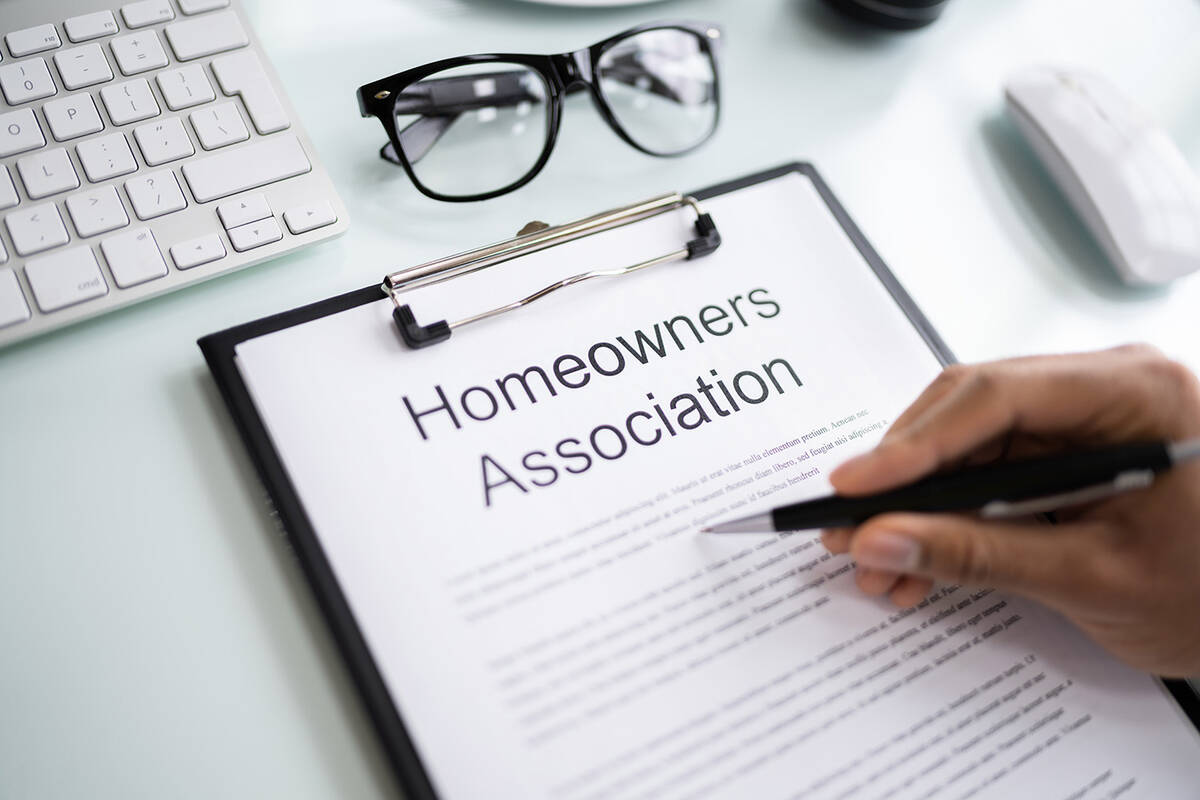Homeowner wants nearby in-person HOA meetings
Q: I belong to a homeowners association with 146 homes. During COVID, the management company switched over to Zoom meetings for our association, which I can understand.
The COVID crises has been over for years, yet they continue with the Zoom meetings. These Zoom meetings are not professional, as many people talk over each other and some people cannot access the site, which keeps dropping and buffering. Our bylaws state: “Meetings of members shall be held at a location in convenient proximity to the property.”
When I asked the management company about this, their response was that I could attend the meeting at their office location, which is a good 25 miles from our community, cross town and held during rush hour. This still would not solve the Zoom website issues.
The management company has an office, less than five miles from the community, but they continue to respond that their room is not available for the scheduled meetings. Is this an issue I need to refer to the ombudsman ?
A: This specific issue was not addressed during the 2023 legislative session. Many associations continue to hold meetings online because of health issues as COVID is still an issue in Southern Nevada.
Associations that are conducting their meetings online do have a responsibility to improve their technology. Individual microphones for board meetings and one for those owners who wish to address the board during the homeowner forums can provide better sound to the owners online. It is relatively inexpensive to provide a better video of the entire board during the meetings.
In conducting Zoom meetings, the host can and should control the meeting’s decorum.
Under Nevada Revised Statutes 116A.620, management agreement, the only regulation addressing the physical location of the management company pertains to association records, as association records must be within 60 miles from the physical location of the association.
Q: I’m the secretary of a 65-unit manufactured housing homeowners association, and I have a question or two (or more) about the annual mailing to members.
As a brief history, I was an association property manager in California for almost 20 years before retiring and moving to Nevada. After several years of resisting, I finally volunteered to be on the board to help them understand and run the association, according to the requirements of NRS 166. I think California has done a better job of clearly defining the laws governing associations. One of the particular peeves in Nevada is calling the board the executive board, which helps confuse executive board meeting and executive session, but be that as it may, my questions are as follows.
NRS 116.31151, 4. states: “The executive board shall, at the same time and in the same manner that the executive board makes the budget available to a unit’s owner pursuant to this section, make available to each unit’s owner the policy established for the association concerning the collection of any fees, fines, assessments or costs imposed against a unit’s owner pursuant to this chapter. The policy must include, without limitation:
(a) The responsibility of the unit’s owner to pay any such fees, fines, assessments or costs in a timely manner; and
(b) The association’s rights concerning the collection of such fees, fines, assessments or costs if the unit’s owner fails to pay the fees, fines, assessments or costs in a timely manner.”
Our board sends out the approved budget to the members in November for ratification at the annual meeting in December, and then sends out the ratified budget, along with the year-end financial (fiscal year ends Dec. 31) for comparison in January.
1. First question is about the collection of fees, fines, assessments, etc. Would this be covered by the assessment collection policy, violation and fine policy and rules and regulations (the policies that have assessments, fines, fees)?
2. Secondly, the statute says to “make available.” It does not say to specifically send the policies to the homeowners. Would a notice enumerating the policies that have assessments, fines, fees and stating the policies are available upon request be sufficient?
3. Third, should the above be sent with the approved budget in November, or with the ratified budget in January?
A: I will address your questions in the order they were asked. The answer to the first one is simply, yes. As to the last two questions. The policies should be included with the budget ratification package.
Barbara Holland, CPM is an author, educator and expert witness on real estate issues pertaining to management and brokerage. Questions may be sent to holland744o@gmail.com.




















